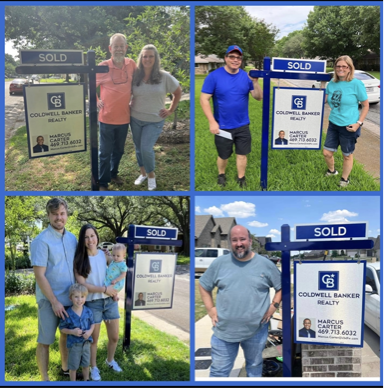Buying a home can be a daunting process, but with the right help, it can also be an exciting journey. Coldwell Banker stands out as a trusted partner for home buyers, providing valuable resources and support throughout each step of the buying experience. This FAQ will guide you through how Coldwell Banker assists home buyers in achieving their property dreams.
Understanding the Home Buying Process
The home buying process can often feel overwhelming, especially for first-time buyers. Coldwell Banker simplifies this journey by breaking it down into manageable steps. From understanding your budget to finding the right neighborhood, they provide essential tools to help you navigate the landscape of real estate.
Moreover, they guide you through the necessary pre-approval processes for securing financing. This proactive approach not only speeds up your ability to make an offer but also helps you avoid potential financial pitfalls along the way.
With extensive experience in the market, Coldwell Banker agents ensure that you are fully informed on the latest trends and conditions. This insight is invaluable, allowing you to make confident decisions in a fluctuating housing market.
Expert Local Agents at Your Service
One of the standout features of Coldwell Banker is their network of local agents. These professionals are not only experienced but also deeply familiar with the neighborhoods they represent. They possess a unique ability to match home buyers with properties that meet their specific needs and aspirations.
The personalized approach of Coldwell Banker’s agents means that you’re not just a number; they take the time to understand your lifestyle and preferences. This commitment to individualized service can make a significant difference in finding the perfect home.
In addition, Coldwell Banker agents are adept at negotiating on your behalf. Their expertise in the local market allows them to advocate effectively, ensuring you secure the best possible deal.
Access to Comprehensive Listings
Coldwell Banker provides home buyers with access to a vast array of listings. Their database covers everything from single-family homes to luxurious estates, ensuring there’s something for every budget and taste. This comprehensive access is a great advantage, particularly in competitive markets.
Furthermore, their user-friendly online platform allows you to filter homes based on your unique criteria. This functionality streamlines the process, making it easy to focus on properties that truly resonate with you.
Additionally, Coldwell Banker often features exclusive listings, which can provide you with an edge over other buyers. Staying updated on these opportunities can aid you significantly in your home search.
Guidance on Financing Options
Navigating financing options is often one of the most confusing aspects of buying a home. Coldwell Banker provides essential educational resources to demystify the process. Their team can connect you with trusted mortgage lenders, explaining various loan types and what might be best for your situation.
They also help you understand the implications of different down payment amounts, interest rates, and loan terms. This knowledge equips you to make informed financial decisions that align with your long-term goals.
Additionally, Coldwell Banker is attentive to your budgetary needs, assisting you in calculating potential monthly payments based on current interest rates. This foresight can play a crucial role in your home-buying experience.
Streamlined Home Buying Tools
Coldwell Banker utilizes technology to make the home buying process smoother. Their streamlined online tools are designed to assist you at every stage, from searching properties to scheduling viewings and submitting offers. This tech-savvy approach helps save time and reduce stress.
For instance, their mobile app lets you explore listings on-the-go, providing real-time updates on new homes just hitting the market. The ability to act swiftly on a potential home can be the key to securing your dream property.
Moreover, utilizing advanced search filters enables you to hone in on exactly what you want. No more scrolling endlessly through listings that don’t fit your criteria; Coldwell Banker’s tools are designed with your needs in mind.
Final Thoughts on Coldwell Banker’s Support for Home Buyers
In summary, Coldwell Banker offers a range of services and support that make the home buying process easier and more accessible. From expert guidance and market insights to personalized service tailored to individual needs, their commitment to helping home buyers is evident. Whether you are a first-time buyer or looking to upgrade, Coldwell Banker is here to help you every step of the way.


 Facebook
Facebook
 X
X
 Pinterest
Pinterest
 Copy Link
Copy Link

 Introduction
Introduction







